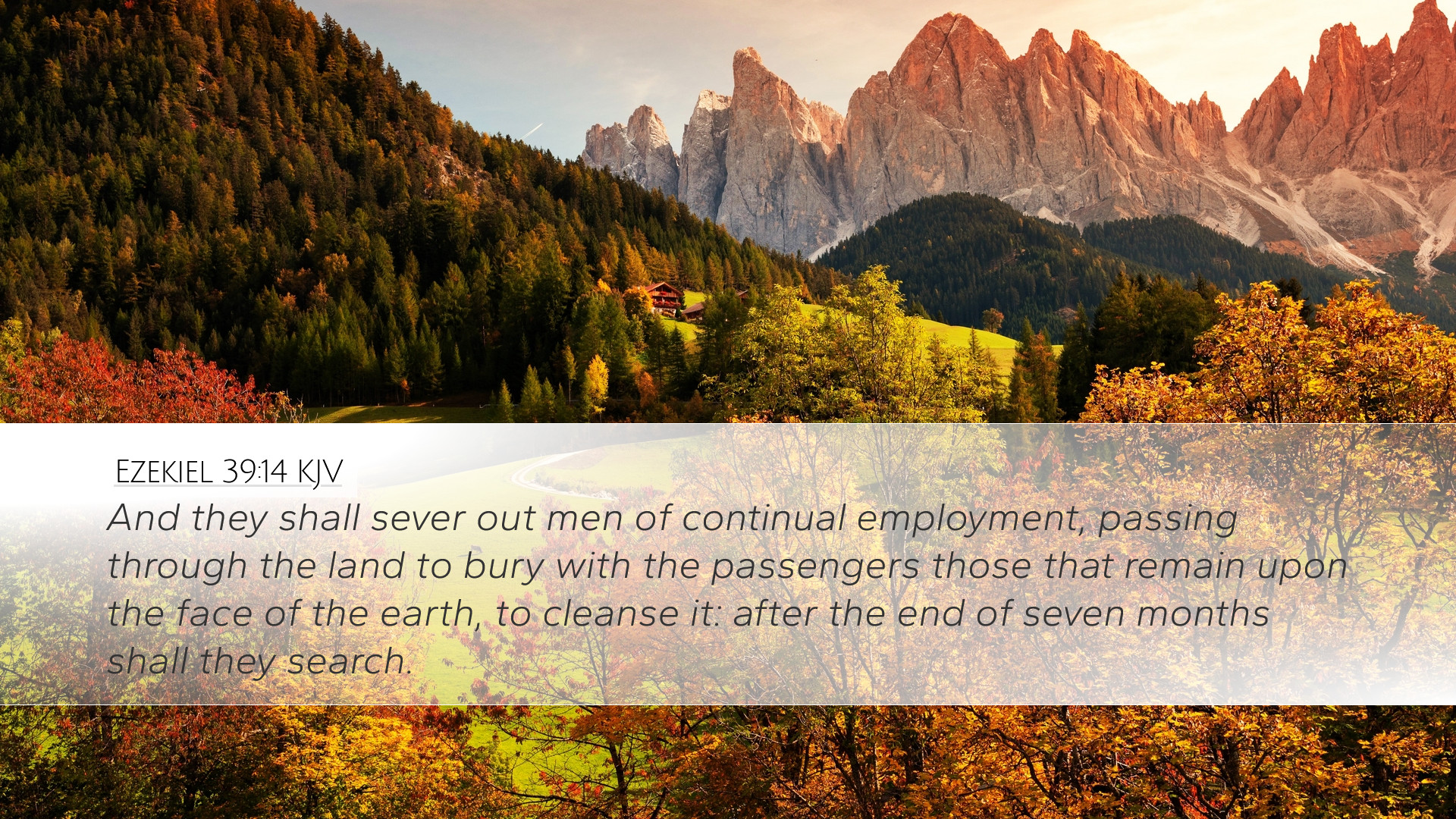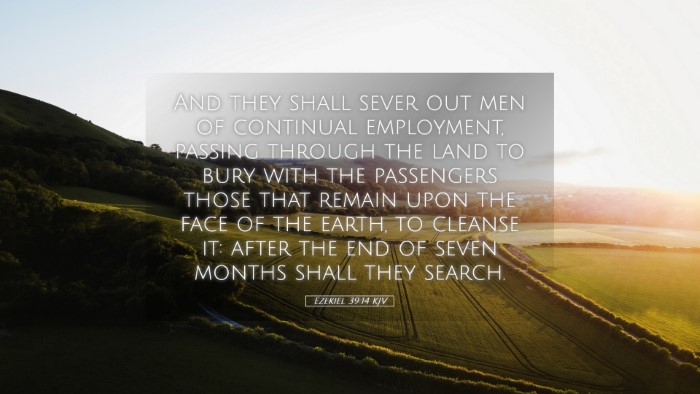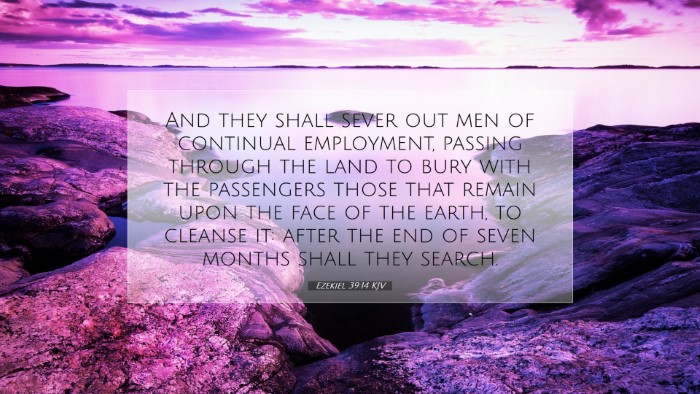Bible Commentary on Ezekiel 39:14
Ezekiel 39:14 reads: "And they shall set out men of continual employment, passing through the land to bury with the passengers those that remain upon the face of the earth, to cleanse it: after the end of seven months shall they search."
Contextual Overview
This verse occurs within a prophetic declaration concerning the ultimate defeat of Gog and Magog, representatives of vast hostile nations. Ezekiel prophesies a time when the Lord will demonstrate His might against these adversaries, ensuring His glory is revealed to Israel and the surrounding nations.
The chapter addresses the aftermath of a great battle, wherein God defends His people, leading to a significant loss among the opposition. The subsequent verses denote a period of purification and restoration, which begins with the task of burying the dead.
Theological Insights
- Divine Judgment: The reference to burial speaks to the severity of God's judgment. Matthew Henry discusses that the magnitude of this burial signifies a complete defeat of those who oppose God and His people.
- Restoration and Cleansing: Albert Barnes draws attention to the symbolic act of burying the dead as a means of cleansing the land. This points to God’s desire to restore holiness in the land once tainted by conflict and idolatry.
- The Importance of Order: Adam Clarke emphasizes the organization of the burial process. The employment of dedicated men signifies diligence and thoroughness in carrying out God’s plan for the land's renewal.
Practical Applications
For pastors and theologians, this passage serves as a reminder of God’s sovereignty over history and the ultimate triumph of His purposes. The burial process signifies the necessity of confronting the consequences of sin, thus encouraging a practical theology that emphasizes repentance and restoration.
Students of the Word can reflect on the meticulousness of God’s plan. The structured approach to burial continues to resonate with biblical principles of order, respect for the dead, and the serious nature of God's judgment, which can be applied to contemporary ministry.
Symbolism of Burial
The act of burial in Ezekiel 39:14 has rich symbolic meaning:
- Finality and Judgment: Burial indicates the definitive end of life and serves as a powerful reminder of God’s judgment on sin.
- Restoration of Relationships: The cleansing process through burial symbolizes the restoration of God's relationship with His people. As the land is cleansed, the community can move into a new chapter of intimacy with God.
- Hope in Despair: Even amid destruction, there is a promise of hope; the organized effort to restore the land represents the requirement of God’s people to engage actively in cleanup and healing after divine judgment.
Conclusion
Ezekiel 39:14 not only serves as a practical guide for the Israelites post-conflict but also offers timeless truths applicable to believers today. It encapsulates the overarching narrative of judgment leading to restoration. The insights from the public domain commentaries of Matthew Henry, Albert Barnes, and Adam Clarke collectively highlight themes of judgment, the importance of meticulousness in serving God, and the hopeful promise of renewal.
Ultimately, this verse can inspire pastors and theologians alike to explore how God’s plans involve both His justice and mercy, calling believers to a life of active engagement in the restoration of their communities.


